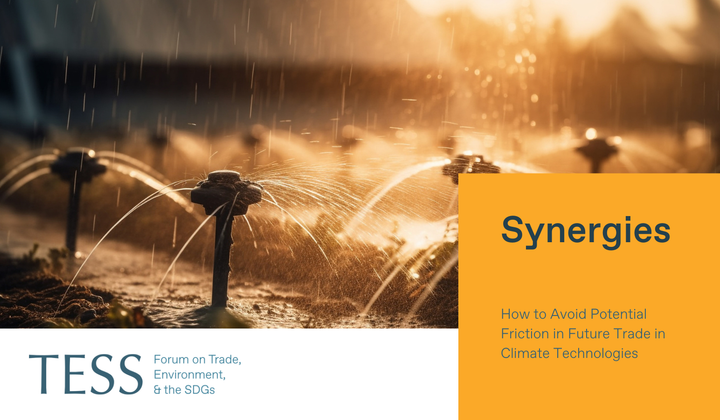Bruegel in collaboration with TESS hosted an informal roundtable bringing together a group experts to share their views on the substantive scope and legal form of, and suitable forum for deliberation on, a potential green subsidy exception under existing rules.
The vast amounts of green industrial subsidies that are now being dispersed to accelerate the transition to net-zero greenhouse gas emissions and to boost competitiveness are starting to generate international trade and political frictions between the world’s largest economies and sow divisions among poorer and richer economies. At the same time, public financing of green industrial policies increasingly places (supra-) national industrial decarbonization efforts on a collision course with international subsidy rules and national countervailing duty laws and regulations.
International cooperation will be essential to defuse such tensions before they escalate and impede effective climate policy roll-outs. International cooperation will also be needed to ensure that the perspectives of countries at different levels of development are reflected, along with wider considerations of sustainable development and fairness in the context of international commitments to a just transition to net zero. A range of different perspectives have been expressed by governments on ways to manage and special and differential treatment for green industrial policies pursued by developing countries.
Options for international cooperation could include convergence around a code of conduct, best practices or other forms of "soft law", or even updated international rules in ways that guide national public authorities towards minimizing negative cross-border economic spillovers and maximizing environmental externalities of green subsidies at the same time. Greenlighting a category of first-best, capping second-best, and reiterating prohibitions of entirely undesirable green subsidy practices may present a pragmatic approach. For each of the possible approaches, analysis of respective subsidy practices and instruments will be needed. Subsidy data availability and transparency will also be a key prerequisite to this end.
Given the expiration of Article 8 of the WTO Agreement on Subsidies and Countervailing Measures (SCM) – and of Article 8.2 in particular - the current international subsidy rulebook does not contain exceptions that would render respective public financing non-actionable. A core issue for consideration is whether the climate emergency and associated public financing to support climate action requires the design and adoption of an exception to SCM disciplines that would shelter certain measures from dispute settlement challenges and countervailing measures. A related issue for consideration is where technical and political deliberations on this topic could be advanced.
After brief input statements from experts highlighting different perspectives and options on these issues, the informal roundtable opened for an interactive discussion among participating experts.
Agenda
Introduction and Welcome remarks
- Carolyn Deere Birkbeck, TESS
- David Kleimann, Bruegel
Setting the Scene
Discussion starters
- Ilaria Espa, USI
- Petros Mavroidis, Columbia University
- Nicolas Lockhart, Sidley Austin LLP
- Julia Nielson, OECD
- Jodie Keane, ODI
Open Discussion Among participants
- Moderator: David Kleimann, Bruegel
Questions for discussion:
- What is the rationale for an environmental exception? What domestic political economy considerations come into play? What are particular issues or concerns from the perspective of developing countries?
- What could be the substantive scope of an environmental exception to the SCM Agreement? What kind of subsidy measures could be unconditionally exempted from SCM Agreement provisions? What measures could be exempted under certain conditions?
- What legal form could an environmental exception to SCM Agreement rules take?
- Should a potential exception differentiate among distinct country categories?
- Which organization would provide for the most suitable institutional infrastructure for potential deliberation, technical preparatory work, and negotiations?
Wrap up and Concluding Remarks
In collaboration with




